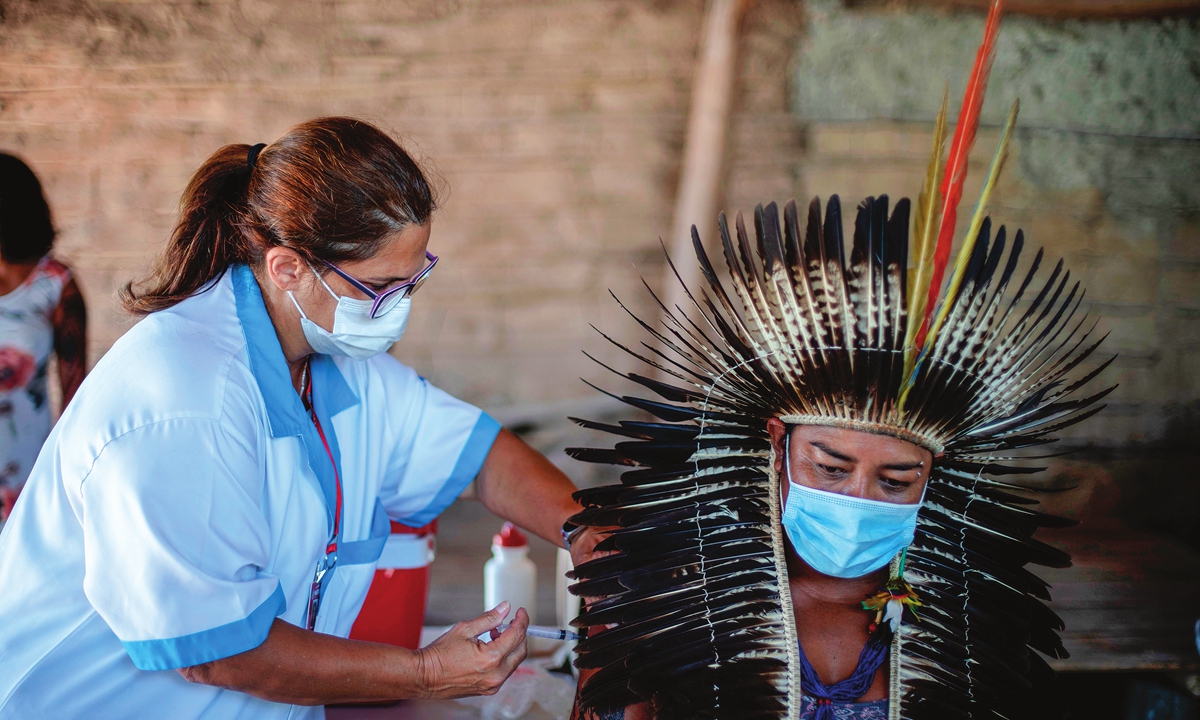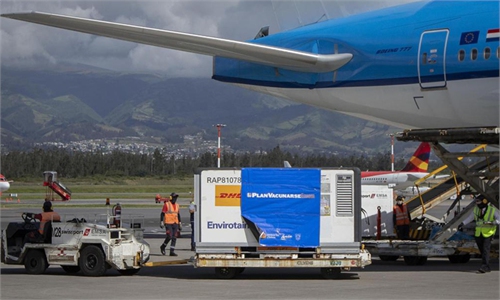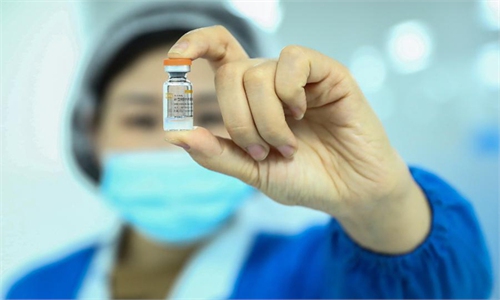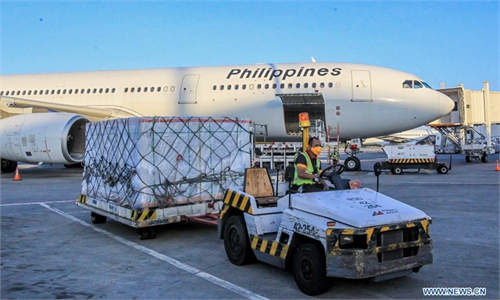Sinovac vaccine effective against virus variants in Brazil; efficacy rises if injection interval is more than 21 days

Guarani indigenous chief Jurema Nunes, receives a CoronaVac vaccination shot during a COVID-19 vaccination campaign in Marica, Brazil, on January 20. Photo: VCG
China's Sinovac COVID-19 vaccine has 50.7 percent efficacy and has proved to be effective against the variants known as P1 and P2 that are prevalent in Brazil, latest data showed. Moreover, the Sinovac vaccine's efficacy rate can climb to 62.3 percent with an interval of more than 21 days between doses rather than 14 days.
The findings appear in the latest report released on Sunday by Sao Paulo's state-owned Butantan Institute, which tested and produced Sinovac's COVID-19 inactivated vaccine named CoronaVac.
The report released specific and comprehensive data on late-stage trials in Brazil. This is the most detailed statistical report on a Chinese COVID-19 vaccine.
The primary efficacy against symptomatic COVID-19 is 50.7 percent. The vaccine is 83.7 percent effective in preventing cases requiring assistance, rising from 78 percent in data released in January. It is 100 percent effective against moderate and severe cases in the randomized, double-blind, placebo-controlled phase III clinical trial involving 12,396 participants, the statistics revealed.
The efficacy rates revealed in this report are slightly higher than those reported in early January, due to tracking changes of clinical data and the different criteria used to define infection cases, spokesperson Liu Peicheng of Sinovac told the Global Times on Monday.
The researchers found that longer intervals between two jabs can bring higher efficacy, in line with the observations of many Chinese medical researchers who recommend a longer interval to maximize the immune antibody level.
All six cases of severe COVID-19 occurred in the placebo group. There were 67 serious adverse events reported by 64 participants and all were determined to be unrelated to vaccination, including two fatal cases, it says.
The final results and relevant statistics are identical with results that got the Chinese drug regulator's conditional approval in February.
"This is the most detailed phase III study of a Chinese-made COVID-19 vaccine to date. It overall demonstrates that CoronaVac has a good safety profile, and that it is efficacious and protective against symptomatic infections," Zhuang Shilihe, a Guangzhou-based doctor who closely tracks COVID-19 vaccines, told the Global Times on Monday, noting that its effectiveness can be optimized further by lengthening the interval between doses.
But undeniably, compared with inactivated vaccines, the mRNA vaccines' efficacy is higher, even much higher than some common vaccines in the market, which has driven up expectations, Zhuang suggested.
"But it does not mean that the inactivated vaccines are not qualified. Take flu vaccines, for instance - the actual effectiveness rates across many countries are between 40 and 50 percent, but this type of vaccine is still officially recognized and widely accepted to use."
Sinovac has also submitted the detailed data to the WHO and drug regulators in the countries or regions that are using CoronaVac, and the relevant authorities will review these detailed figures before making approval decisions, the Global Times learned from Sinovac.
CoronaVac has been given approval for emergency use in various countries, such as Pakistan and Panama.
Some media recently blamed CoronaVac's efficacy rates for high infections in Chile, quoting a study by the University of Chile that claimed the effectiveness after the first shot of CoronaVac was only three percent.
But a source close to the matter told the Global Times on Sunday that the university's report is not "comprehensive and authoritative" and is based on "very limited" open data.
"The data was only an 'exercise' conducted by a research team of the university, based on public data. It is very limited, not even close to being a paper," said the source.
The official and overall data from the rollout of the CoronaVac vaccine will be released next week by Chile's Ministry of Health, the Global Times learned from Sinovac on Sunday.




